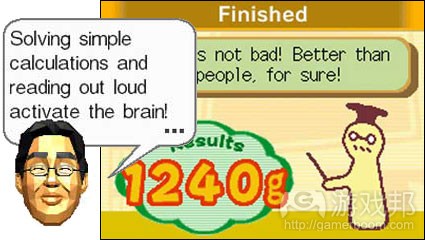阐述游戏对玩家的3大吸引力及个性发展影响
作者:Gabriel Lievano
《模拟人生》,《魔兽世界》,《生化奇兵》,《龙腾世纪》,《时空幻境》,《最终幻想》以及《俄罗斯方块》等游戏有何共同点?它们都是一些非常成功的游戏,阐述着游戏主角如何挑战各种谜题,冒险,敌人和挫折的故事。这些游戏之所以能够吸引广大玩家的主要原因是,它们能够满足人们希望获得成功的内心想法(游戏邦注:不论是关于自身的个性发展还是游戏内部角色的发展)。
在大多数成功游戏身上我们并不能感受到游戏对于自身个性发展的帮助(当然也有些例外),但是我却认为这是维系着玩家与游戏间最深层次交流的方式。如今有许多关于心理影响的研究,但是却很少人能够明确说出玩家玩游戏的原因:1)作为消遣,2)想要培养一种(游戏)技能,或者3)好奇游戏到底想要传达何种内容。
作为消遣方式
如果玩家将游戏当成是一种消遣工具也就意味着游戏能够帮助他们逃离现实生活的束缚。这些消遣游戏能够让玩家将自己在现实世界中的想法真正融入到游戏中去。而为了真正体现出这种消遣感,游戏必须与玩家角色维持起一种内在的联系。举些例子来说吧,在《模拟人生》中,玩家便与游戏角色紧密联系在一起;《魔兽世界》让玩家能够与真人竞争;还有一些Facebook游戏也融入了与《魔兽世界》一样的竞争关系。
想要培养一种技能
有些游戏能够满足玩家自身的发展需求。譬如这些游戏会说:“如果你长期玩游戏,你便能够培养出一些对现实生活有帮助的技能。”最典型的例子便是《大脑年龄测试》这款游戏——尽管很多益智游戏也被归类为这种个性发展的类别中。益智游戏只会向玩家传达:“如果你玩游戏,你便会看起来更加聪明。”我之所以说是“看起来”是因为这其实带有欺骗性:因为它们并不会让你真的变聪明,只是会让你感觉自己好像变聪明了似的——而这也是玩家为何选择玩这类型游戏的主要原因(游戏邦注:益智游戏除了能够成为玩家的消遣工具,同时玩家也会被它所传达的“信息”而吸引)。
很多街机游戏也能够体现出这一点。例如《俄罗斯方块》,在游戏中每当玩家到达了一个更高的关卡时游戏便会说道:“现在你的反应能力更快了,你可以将这种特长应用于现实生活中。”我同时也发现大多数《俄罗斯方块》玩家在现实世界中更能够有效地集中注意力。
好奇游戏到底想要传达何种内容
最后,有些游戏能够真正从情感方面影响玩家的选择。就像阅读书籍或观看电影那样,游戏也能够通过传达理念,观点或故事去吸引玩家的注意。而这类游戏更能够吸引那些喜欢从经验中获得学习的玩家。他们喜欢那些能够让自己不断以更快的速度去挖掘世界奥秘的游戏(并且可以反复地进行尝试而不会轻易失败)。如果游戏开发者想要吸引这类型玩家的注意,他们就需要在游戏内部的角色发展多下功夫,因为这是维持游戏与这类型玩家紧密联系的唯一途径。
在游戏中还有许多关于个性发展的内容(不只是关于故事中的角色发展)。很多游戏还尝试着使用其它方式去维系玩家与游戏间的关系,并也得到了一些特别的反应。但是不管怎样,当你在设计一款游戏时最好能够想办法从玩家身上获得上述的三种反应,因为它们都是彼此兼容的。
游戏邦注:原文发表于2010年7月6日,所涉事件和数据均以当时为准。(本文为游戏邦/gamerboom.com编译,拒绝任何不保留版权的转载,如需转载请联系:游戏邦)
Character Development
by Gabriel Lievano
What does games like The Sims, World of Warcraft, Bioshock, Dragon Age, Braid, Final Fantasy, and even Tetris have in common? They are all successful games and they all tell the story about the hero who challenged all the puzzles, adventures, enemies and setbacks of the game. It attracts players because it satisfies a psychological need to succeed whether it is represented on a personal character development or an ingame character development.
You can’t appreciate the benefits of character development on most of all successful games (there are a few exceptions off course) and I believe this is probably the most profound communication that there is between player and game. There’s a lot of research to be done yet about the psychological implications but there are a few guesses that can be made about why people play games: 1) a distraction, 2) a desire to develop a (gaming) skill, or 3) a curiosity about what the game is trying to say.
A DISTRACTION
Games as a distraction may be interpreted as games as a way for the player to escape from the routines of real life. Games which better produce the distraction desired for a player are those games that allows the player to transfer his perception of the world into the game. This is probably true because the sensation of entirely loosing time is not sympathetic with the player’s desire so there must be some kind of intrinsic link between the game and the player’s character. A good example about this are games such as The Sims (the player relates with the characters in the game), World of Warcraft (there’s a relationship with real people competition), or facebook games (the same “real” competition relationship as in WoW).
A DESIRE TO DEVELOP A SKILL
Some games relate directly with the internal desire of a player’s character development. These games are just saying: “if you play me long enough you will develop skills which will be useful for your real life”. The best example of this are the Brain Age games, however any puzzle game can be cataloged under this type of character development. Puzzles games just say: “if you play me you’ll look smarter”. I write “look” because puzzle games are somehow deceptive: they don’t make you smarter, they just make you feel smarter and that’s why you play them (with the exception that puzzle games could be disctractions to the player or even trying to attract the player for its “message”).
A lot of arcade games also fit this. For example Tetris, everytime somebody achieves a higher level it is saying: “now you are a faster player, your reflexes are better in real life”. I also read once somewhere that heavy Tetris players had better concentration and attention skills in real life.
A CURIOSITY ABOUT WHAT THE GAME IS TRYING TO SAY
At last there are some games which communicate with the emotional side of the players. Just like reading a book or watching a movie, some games attract players by sharing an idea, insight or a story. This type of games are probably the favorite for players who like to learn by experience. They like where the games lead them because is like discovering the world at a faster pace (and without losing, you can always retry). For games trying to call on the player’s curiosity they must make a lot of work on ingame character development since these must relate deeply with the player.
In the end, there’s a lot about character development (not story character development) in games. There are a lot of other games trying to communicate with players in other ways and achieve unconventional reactions on its users. When designing a game, probably the best way of proceeding is to achieve the three reactions on players (distraction, desire of skill development, and curiosity about message) since they are all compatible between each other. (source:GAMASUTRA)








































 闽公网安备35020302001549号
闽公网安备35020302001549号